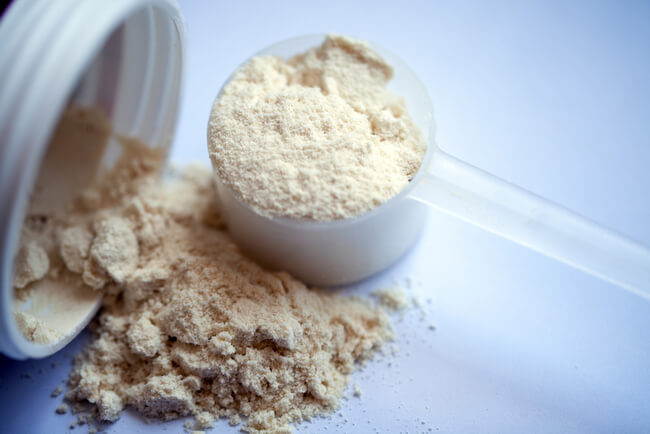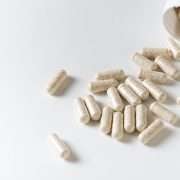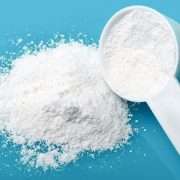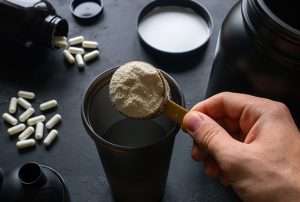Most Common Myths About Plant-Based Protein
Most Common Plant-Based Protein Myths Busted
If you look around, you’ll see more people than ever are turning towards leading an active and healthy life. People are more and more interested in gathering knowledge about the correlation between health and food which has made plant-based diet more popular than ever which also led to a few myths about plant-based protein.

Let us debunk some myths about plant-based protein:
Myth 1: Plant-based protein is not a complete protein

Our human body requires nine essential amino acids (proteins) to function. They are called essential because they can’t be produced by the body, we need to get it from other external sources.
While it’s true that most of the plant-based sources are lacking in the nine essential amino acids, it is definitely possible to get them by combining multiple sources of protein, which is what we did with our Plant Protein formula. We combined two complementary amino acid profiles of Brown Rice and Pea protein to give you 25g of complete plant protein in each serving.
Myth 2: Plant-based proteins are high in carbohydrates

There are plant protein sources that have more carbs than whey protein but this isn’t true across the board. Also, the difference is usually very nominal for people to even realize.
The entire process of extracting plant-based protein from raw materials to finished product is so exhaustive that it eliminates many of the naturally occurring carbohydrates. The final powder is something that usually has a good carb-protein ratio.
Plix plant protein has only 25g of protein and only 128 calories. It contains only 5g of carbohydrates.
Myth 3: Plant-based proteins are not as effective as whey protein for building muscles

Whey protein has long been considered a superior source of protein for building mass. But this notion of plant-based proteins being less effective is not entirely backed up by scientific research.
The key protein responsible for muscle synthesis is one called Leucine, which is found in both whey and plant-based proteins (particularly brown rice). Whey usually has a higher concentration of leucine (between 8-11%), and plant-based protein has (6-8%), a little less in comparison. However, the point to be noted is that our body uses only a certain amount of leucine to maximise protein synthesis, once that amount is reached, whatever’s extra only leads to plateau a person’s ability.
Therefore, the proper dosage of leucine in plant-based protein is key. For eg. It takes 36 grams of rice protein to provide the same amount of leucine as 24 grams of whey protein. But once you consume 48 grams of either, there seems to be no advantage of choosing one over the other.
Myth 4: Plant-Based Protein Is Chalky And Doesn’t Blend!

We get it; you must have tried whey protein before and realised it dissolves pretty well to give you a smooth texture. But the deal with plant-based proteins is that as compared to whey protein, the fiber induced plant protein particles are larger in size. They cannot be crushed as finely as whey protein.
Therefore, it is advisable to immediately consume your plant protein after giving it a few shakes. Keeping the drink still while working out, results in the particles settling at the bottom. You can always use Plix sipper to shake and sip your protein.
Myth 5: Protein Powders Are Artificial and Highly Processed
You will find all sorts of protein available in the market today. The processing techniques might vary from different brands to companies. At Plix we only use the best and clean ingredients to make our power proteins. Feel free to check out our labels for more details.
Myth 6: The More Protein Is Always Better!
There is a certain limit assigned to everything in life and the same goes for our bodies. When it comes to protein, more does not always mean better. Reason being, our bodies are designed to absorb only around 20g of protein at a given time. Feeding it 30g, 40g or 50g of protein actually does nothing extra because all of it gets flushed out of our kidneys anyway.
25g of plant protein per serving is good enough for anyone wanting to live a more fit and active lifestyle or even wanting to build lean muscles. Try Plix Plant protein in delicious flavours like Mango, Banana Vanilla, café mocha and raw chocolate to fuel your appetite.
You can also buy our Plant-based protein powder from Amazon here:
Final Takeaway
Use Whey if you have to. But if you are looking for a plant-based protein, rest assured you won’t be compromising on nutrition.















